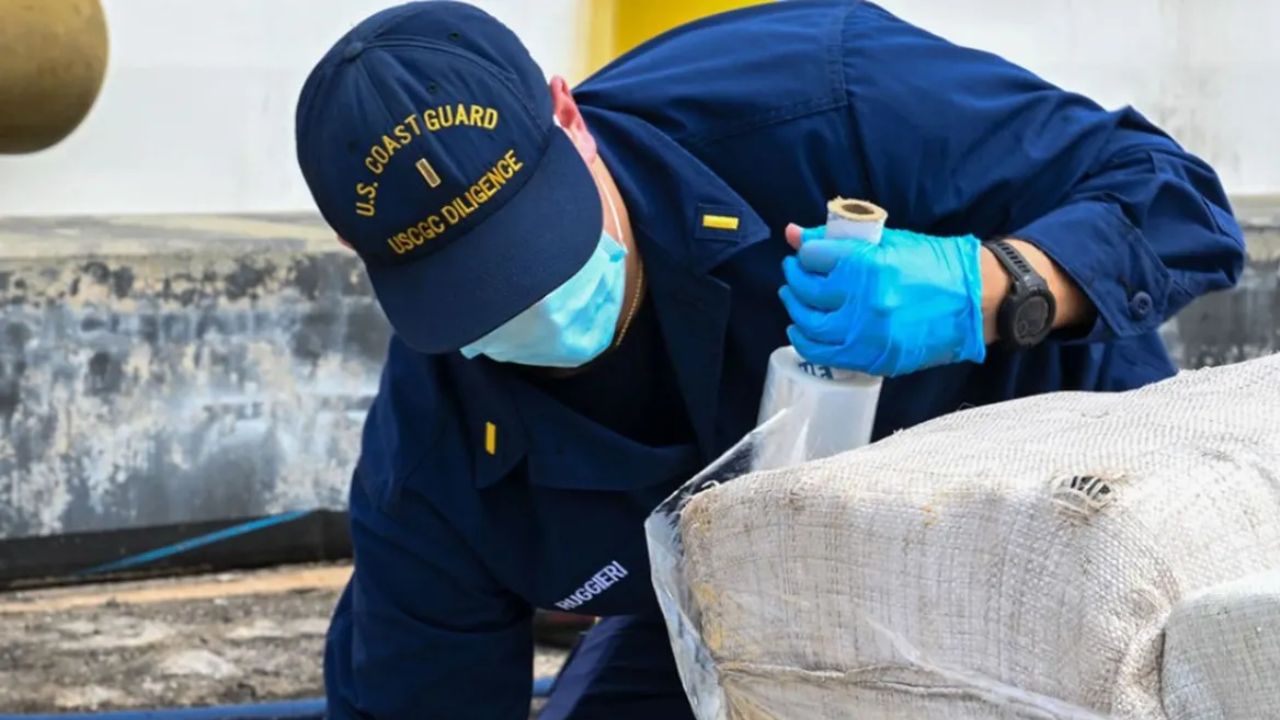Florida – In an unprecedented law enforcement achievement, a Florida-based multi-agency drug task force has seized an astounding 1 million pounds of cocaine during the 2025 fiscal year. This massive haul, announced by the Joint Inter-Agency Task Force – South (JIATF-S), led by U.S. Southern Command (SOUTHCOM), represents 378 million lethal doses—enough to fatally affect every American.
This seizure not only marks a historical high but also effectively denies cartels and narco-terrorist organizations approximately $11.34 billion in revenue, significantly disrupting illicit drug operations in a critical trafficking corridor spanning South America, Central America, and the Caribbean.
Record-Breaking Seizure and Its Scope
The 1 million pounds of cocaine seized over the past 12 months equate to an immense quantity sufficient to fill 42 dump trucks. The fiscal year concluded on a notable Tuesday, with officials confirming this extraordinary achievement.
- JIATF-S operates across a broad expanse of 42 million square miles, covering eastern Pacific to western Atlantic waters.
- The operation focuses on the “transit zone” between South America, Central America, and the Caribbean, a hotspot for drug trafficking.
- The seizure does not factor in recent strikes targeting Venezuelan narco-terrorists, indicating potential further success.
JIATF-S, which includes cooperation from the U.S. Coast Guard and partner nations, calls this victory vital in saving lives and protecting the U.S. homeland.
Heightened Military Actions Under Trump’s Strategy
Under the Trump administration, military operations in the Caribbean have intensified markedly as part of a broader counter-narcotics approach. The deployment of additional U.S. Navy guided-missile destroyers in August has reinforced these efforts, focusing on intercepting smuggling vessels and weakening transnational cartels.
Recent months have seen President Donald Trump label drug trafficking organizations such as Tren de Aragua and the Sinaloa Cartel as foreign terrorist organizations, signaling a shift in how these groups are targeted.
“By disrupting the flow of these deadly drugs, JIATF-S is saving lives and protecting our homeland,” officials stated.
Additionally, the Justice Department has offered a $50 million reward for information leading to the capture of Venezuelan President Nicolás Maduro, accused of orchestrating drug trafficking operations through the Cartel of the Suns, allegedly involving senior government and military officials.
Venezuela’s Involvement and Maduro’s Response
U.S. authorities accuse Maduro of collaborating with the Revolutionary Armed Forces of Colombia (FARC), a designated foreign terrorist group, in narcotics conspiracy and arms trafficking. Prosecutors allege Maduro arranged multi-ton shipments of cocaine with FARC and facilitated the transfer of military-grade weapons.
Maduro has fiercely condemned U.S. military actions, denouncing them as “extravagant, unjustifiable, immoral and absolutely criminal and bloody threat,” accusing President Trump of launching a broader campaign aimed at toppling his government.
What This Means for the Future of Counter-Narcotics Efforts
The sheer scale of this cocaine seizure highlights both the challenge and progress in the United States’ ongoing fight against powerful drug cartels and narco-terrorists. The success of JIATF-S underscores the importance of multinational coordination and robust military support in disrupting illegal narcotics trafficking.
- Continued military vigilance and strategic deployments are expected to remain central to counter-narcotics strategies.
- Designation of drug cartels as terrorist organizations could intensify legal and military responses.
- International cooperation remains key in managing the vast maritime and land transit zones exploited by trafficking networks.
For more detailed information, read the original report on Fox News Digital.
Engage With the Fight Against Drug Trafficking
What do you think about this record-breaking cocaine seizure and the ongoing efforts to combat drug cartels? Have you followed recent U.S. military actions in the Caribbean? Share your thoughts and insights in the comments below!


 by
by 

